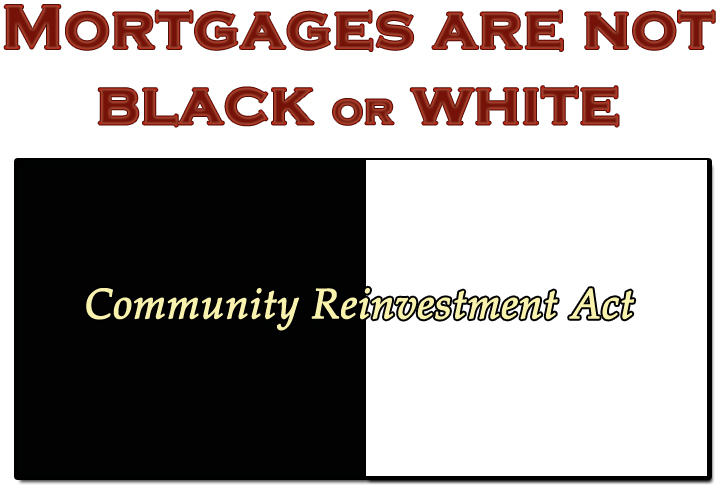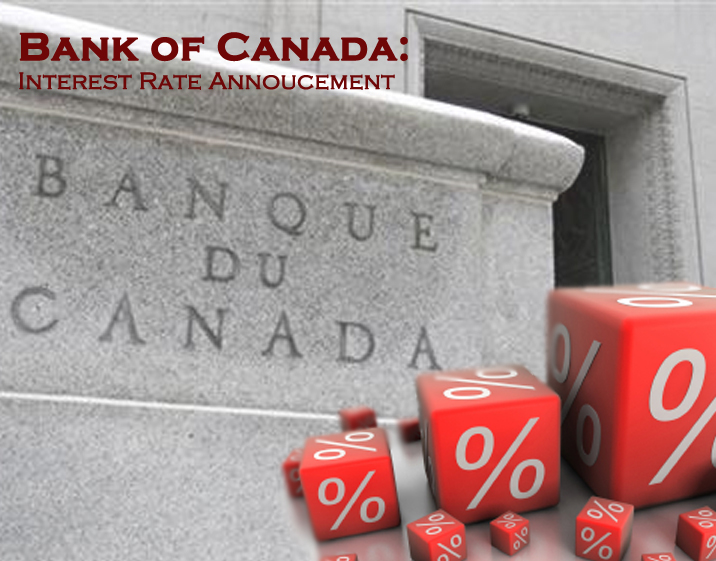“Maintaining the status quo for America is not an option for the global economy, more specifically for Canada.”
Now that Americans have decided to maintain the status quo, high unemployment rates, mounting debt, failing economy and political gridlock, the only question remains – How does the election result impact Canada? Unfortunately the American Presidential election is not something we can simply dismiss by saying “it’s their business, not ours”; our business is impacted by who and what party America elects.
In Canada, the Harper government did what it was supposed to do, they, stayed out of it and keep their opinions to themselves. Not easy to do considering how intertwined our economies are but we’re the junior partner in this relationship and we have to tread lightly. It didn’t take long for both Prime Minister Harper and Finance Minister Jim Flaherty to issue statements that maintaining the status quo for America is not an option for the global economy, more specifically for Canada. Here’s how Prime Minister sugarcoated it, “The U.S. has taken many aggressive and ambitious measures on its financial system but we’re now facing the fiscal cliff situation in the American political system in the next couple of months. That’s a big uncertainty.” Finance Minister Jim Flaherty was more direct, “Of course we’re worried because it would mean — were the entire fiscal cliff risk to come to reality, there would be the effect on U.S. GDP — according to the Americans themselves — would be four to five per cent, which would put the U.S. economy into recession quite quickly, and the Canadian economy would follow shortly thereafter, and would have significant effect on the global economy. So this is all very serious, and we hope our American colleagues move forward to a resolution promptly.” No ambiguity there. The stakes are high and it’s hard to imagine that both Democrats and Republicans would be willing to drag their economy, and subsequently ours, into another recession for ideological reasons. Then again I wouldn’t bet on them doing the right thing for the greater good either.
Obama’s reelection probably means that Fed Chairman Ben Bernanke stays on the job when his term expires. The Republicans made it very clear they were displeased with Bernanke, and the role that the Treasury plays as it relates to monetary policy. Bernanke willingly or unwillingly helped Obama out during the campaign with the introduction of QE3, quantitative easing, which helped to boost economic data over the last two months of the campaign. If Bernanke stays on the job we can expect rates to stay at historical lows until Q3 of 2014. As I’ve stated before, if you want some indication as to where rates are going in Canada, see what the Fed Chairman is doing.
So, our government is concerned about the fiscal mess the Americans are in, rates are not going up in the mid-term, no indication if Obama is going to change his position on the Keystone Pipeline, looks like not much has changed. For our sake let’s hope the President is willing to move to the center and work with Republicans on the “Bush” tax cuts and budget. The pragmatist in me believes it may happen given the President doesn’t have to pander to his base anymore; he’s never running for office again. The pessimist in me takes over when I consider the President has never made an attempt to move to the center, even after the Democrats lost their majority in Congress in 2010. That should be worrisome for all of us because we all have skin in this deal.
Until next time,
Cheers.
Read More Add a Comment
“The question on the mortgage application asked “Are you Caucasian, African American, Latino, Asian, Native American or Other?” My initial reaction was shock, but then it dawned on me why I was being asked this question… Now there’s a recipe for responsible lending.”
My blog last Tuesday, “Honouring a Canadian Hero”, referenced the failed Presidency of Jimmy Carter. As stated, I do not believe history will be kind to Jimmy Carter and his legacy and defining moment will forever be the American Embassy hostage crisis in Iran. The final act of humiliation for Carter was when the Iranians only agreed to release the hostages after Ronald Regan’s inauguration. Regan negotiated a deal for oil with the Iranians, and he w as responsible for the hostages being released. I think it would be a challenge, even for President Carter’s most ardent supporters, to make a case that he was an effective Commander and Chief. What about as a legislator? Once piece of legislation the President Carter signed into law was what I believe was the genesis of the mortgage meltdown.
as responsible for the hostages being released. I think it would be a challenge, even for President Carter’s most ardent supporters, to make a case that he was an effective Commander and Chief. What about as a legislator? Once piece of legislation the President Carter signed into law was what I believe was the genesis of the mortgage meltdown.
In 1977, President Carter signed into law the Community Reinvestment Act. The law was designed to force banks to meet the needs of borrowers in all communities, with a focus on moderate and low-income neighbourhoods. The belief at that time was that the banks were discriminating against moderate and low-income neighbourhoods. To remedy this, Crater and Congress passed a law requiring banks to ensure that moderate and low-income borrowers (in those days was code for “non-qualified”) would be able to get a mortgage. The new law armed regulators with the authority to block bank mergers and expansion if they were deemed to be non-compliant. The Community Reinvestment Act stated banks were not required to make high risk loans, however, the penalty for not doing so could impede a bank’s ability to grow and create value for its shareholders; dilemma, dilemma.
The truth is that after many years of the law being enacted, regulators exercised caution when disciplining banks for non-compliance of the Community Reinvestment Act. But that all changed when William Jefferson Clinton became President. An amendment to the Act was made requiring Fannie Mae and Freddie Mac, two government agencies, to securitize mortgages for those borrowers who were moderate or low-income borrowers. Also, the regulators were instructed to enforce the law. No more ambivalence, no more looking the other the other way. Upon audit if a bank was found to be non-compliant with the Community Reinvestment Act, the banks’ ability to grow would be impeded by the government, period. Oh, but it got even better. Social and community groups were encouraged to file complaints if they believed a bank was not in compliance with the Community Reinvestment Act. It got to the point where some banks were paying off – pardon me – making significant dollar contributions to community groups to not file a complaint. These community groups gladly accepted the “donations” from the banks with the understanding that banks still had to fund “X” dollars in mortgages in moderate and low-income communities. Under Clinton, the banks had to find ways to do non-qualified loans but now they could securitize these loans and get if off their balance sheet. Now there’s a recipe for responsible lending.
I got a firsthand look at the folly of this Act. For a short period of time I had a mortgage in the U.S. I will never forget one of the questions on the mortgage application. The question was, “Are you Caucasian, African American, Latino, Asian, Native American or Other?” My initial reaction was shock, but then it dawned on me why I was being asked this question. The criteria to qualify would depend on how I answered that question. The Department of Housing and Urban Development (HUD) requires lenders to collect this data to ensure equal lending practices, and the Community Reinvestment Act ensures that those who would not normally qualify for a mortgage, do. Can you imagine having to ask that question here in Canada? Now, is it any wonder that we weathered the meltdown so much better than our neighbours to the South? Lending in Canada is not based on racial quota, it’s based on qualifying. I’ve said it before and I will say it again, the mortgage meltdown was the result of irresponsible behaviour that boarded on criminal by some. However, if fingers are going to be pointed at those responsible for the mortgage meltdown then historical perspective is required. The Community Reinvestment Act provided the kindling, newspaper, butane and matches; Wall Street set it ablaze.
Tonight Americans decide who their next President will be. I’m struck by the parallels between the Carter and Obama era. Both had no answer for a failing economy. During both administrations the American psyche was and currently is extremely fragile. Under both administrations the future brought little hope. Both administrations had to deal with an embassy crisis. Both blamed their predecessors for the state the economy at re-election. It didn’t work for Carter and tonight we will learn if it worked for Obama.
Until next time,
Cheers.
Read More Add a CommentSo… we’ll have to depend on the global economy to make up for the negative impact that a slowing Canadian real estate market will have on our economy?
Where are they hiding? They weren’t bashful about sharing their opinion when they were telling the Government to cool down the real estate sector. The real estate industry was the apple of every headline seeking expert’s eye. Government must act now…our economy is at risk…for the love of all things holy please save mankind from the evils of real estate. Funny watching the outcome – the government acted, the market dropped by 15 per cent and now those who demanded government action are now all of sudden too busy to comment.
 There was a good article written by Michael Babad in the Globe yesterday titled “Careful What You Wish For”. The article refers to a new report from Avery Shenfeld, Chief Economist for CIBC. I won’t regurgitate the facts but the gist of the article is that slowing down the real estate sector could end up having a far reaching impact on the Canadian economy. Pleads from the minority, like CAAMP, cautioning the government not to over reach for fear of exactly what CIBC is now saying maybe should have been heeded. Here’s a quote I found interesting from CIBC’s report, “In 2013 an economic acceleration looks unlikely absent a new source of growth to fill in housing’s gap. That makes it even more urgent that the global economy is healthier come 2014, when the full bite of a housing slump on domestic activity will be felt. Until that’s a sure bet, policy makers will be cautious about pouring more cold water on the housing sector through further changes in mortgage insurance or higher interest rates.” So we’ll have to depend on the global economy to make up for the negative impact that a slowing Canadian real estate market will have on our economy? But we should all take solace in the fact that Shenfeld doesn’t believe the government will do anything to slow down the market further. I wonder what the magic number is? A 15 per cent drop is acceptable but 20 per cent or greater is unacceptable?
There was a good article written by Michael Babad in the Globe yesterday titled “Careful What You Wish For”. The article refers to a new report from Avery Shenfeld, Chief Economist for CIBC. I won’t regurgitate the facts but the gist of the article is that slowing down the real estate sector could end up having a far reaching impact on the Canadian economy. Pleads from the minority, like CAAMP, cautioning the government not to over reach for fear of exactly what CIBC is now saying maybe should have been heeded. Here’s a quote I found interesting from CIBC’s report, “In 2013 an economic acceleration looks unlikely absent a new source of growth to fill in housing’s gap. That makes it even more urgent that the global economy is healthier come 2014, when the full bite of a housing slump on domestic activity will be felt. Until that’s a sure bet, policy makers will be cautious about pouring more cold water on the housing sector through further changes in mortgage insurance or higher interest rates.” So we’ll have to depend on the global economy to make up for the negative impact that a slowing Canadian real estate market will have on our economy? But we should all take solace in the fact that Shenfeld doesn’t believe the government will do anything to slow down the market further. I wonder what the magic number is? A 15 per cent drop is acceptable but 20 per cent or greater is unacceptable?
Seeing how we’re going to have to depend on the global economy to make up for the slowing real estate market we had all better keep on eye what’s happening in other parts of the world. Not sure if we should feel warm and fuzzy depending on Greece, Italy, Spain, China and the U.S. The Fed’s were in a tough spot and there’s no way they could predict, with one hundred per cent accuracy, the exact level of the slowdown. But in less than three months of the most recent changes to the mortgage rules there are signs they may have over reached; if that proves true there could be repercussions for the Fed’s, like contributing to Justin Trudeau mania.
Related Posts:
BOC Leaves Target Rate “As Is”
Canada Housing: Correction vs. Bust – Let the Finger Pointing begin
Bank of Canada still locked with the US Fed?
Real Estate & Mortgage Industry: The Margin Battle
Until next time,
Cheers.
Read More Add a Comment Even if it took an American movie production company, as well as actor/producer Ben Affleck, to remind us of Ken Taylor’s heroism then so be it. For those of you under the age of 35, Ken Taylor was a true hero. He never played in the NHL nor was a hip-hop artist. Ken Taylor was the Canadian Ambassador to Iran, and I was reminded of his bravery and courage while watching the movie Argo over the weekend. The movie is about six American diplomats who escaped from Iran during the American Embassy hostage crisis in 1979. For those of you old enough to remember the eyes of the world were focused on the crisis and everyone was stunned at the audacity that a super power embassy would be invaded. At the beginning of the crisis Canadian’s, along with the rest of the world, watched the events unfold, but the rest of the world would learn about a Canadian’s bravery and what it means to be an ally.
Even if it took an American movie production company, as well as actor/producer Ben Affleck, to remind us of Ken Taylor’s heroism then so be it. For those of you under the age of 35, Ken Taylor was a true hero. He never played in the NHL nor was a hip-hop artist. Ken Taylor was the Canadian Ambassador to Iran, and I was reminded of his bravery and courage while watching the movie Argo over the weekend. The movie is about six American diplomats who escaped from Iran during the American Embassy hostage crisis in 1979. For those of you old enough to remember the eyes of the world were focused on the crisis and everyone was stunned at the audacity that a super power embassy would be invaded. At the beginning of the crisis Canadian’s, along with the rest of the world, watched the events unfold, but the rest of the world would learn about a Canadian’s bravery and what it means to be an ally.
The Ken Taylor story is an extraordinary one. The movie Argo gives only glimpses of the role Ken Taylor played during the whole ordeal. It’s an American movie; therefore, the Americans have to be the heroes of the movie. No doubt that the CIA came up with an ingenious plot to get the six Americans diplomats out of Iran, and the story behind it was declassified in 1997, by the then President Bill Clinton. In the event you’re not familiar with the story, I won’t give it away, but it is right up there with anything that Clancy, Flynn or Ludlum could come up when writing a novel. Maybe not Ludlum because he’s been dead since 2001, and all his books released after 2001 have been written by ghost writers, most people don’t know that. I digress, no doubt the movie embellished certain aspects of the story for theatrical purposes but that’s Hollywood. Affleck’s movie had no choice but to highlight Ken Taylor and Canada’s willingness to support an ally. If the Iranian authorities had found out that Ken Taylor had supported the CIA efforts, the consequences would have been dire and a good chance those six American Diplomats would be dead today.
The only annoying part of the movie was right at the end of the credits. There was a voice over from Jimmy Carter, the President during the hostage crisis. He stated he really should get the credit but the real story could not be told so the Canadians had to get the credit. I understand Carter wanting to shape the narrative as it relates to his Presidency. His Presidency can be best described as an abject failure, and anything he can say to change historical perceptions works to his benefit. The real political hero here was former Canadian Prime Minister, Joe Clark. I had the pleasure of speaking to the former Prime Minister prior to last year’s CAAMP Mortgage Forum; what a humble and respectful man he his. Unlike Carter, Joe Clark never hungered for glory or credit for his role in getting the six American diplomats out of Iran. He did his job as a leader, and given that Canada has also declassified what happened he should be acknowledged for his courage. In a strange twist of fate the Iranian hostage crisis cost Carter his Presidency and indirectly led to the downfall of the Clark government. That in itself is a very interesting story.
Our role in the escape was a proud Canadian moment. If you’re looking for something to do with yourself on a Saturday night, because hockey players and owners can’t figure out a way to divvy up $3.3 billion in revenue, you may want to take in the movie Argo. For those of us old enough to remember, it’s a good reminder. For those too young to really know, you’ll learn something while being entertained
Until next time,
Cheers.
Read More Add a CommentYou’ve heard it all before, Europe bad, China slowing and US crawling along. With respect to Canada’s economy, the BOC is projecting a 2.1 percent growth this year, 2.3 percent next year a 2.4 per cent in 2014.
 As a surprise to absolutely no one the Bank of Canada left the benchmark interest rate at 1% for the 25th consecutive month. Furthermore, BOC’s economic outlook for the next few years remains unchanged. In other words not much has changed since the last announcement from the Bank of Canada. Maybe there should only be announcement when there’s actually something to announce. Given the repetitiveness of the announcements everyone is looking at language subtly for an indication that something might be different. There was a twist or something new in this announcement in that the central bank will consider the state of household finances before increasing the target rate.
As a surprise to absolutely no one the Bank of Canada left the benchmark interest rate at 1% for the 25th consecutive month. Furthermore, BOC’s economic outlook for the next few years remains unchanged. In other words not much has changed since the last announcement from the Bank of Canada. Maybe there should only be announcement when there’s actually something to announce. Given the repetitiveness of the announcements everyone is looking at language subtly for an indication that something might be different. There was a twist or something new in this announcement in that the central bank will consider the state of household finances before increasing the target rate.
That’s interesting because the BOC expressed, yet again, their concern it has over household debt. So if Canadians do not curb their insatiable appetite for debt (let’s be clear the debt refers to mortgages) the BOC may increase rates to curtail the said behaviour. Is this simply a threat, and why now? I think it’s rather apparent that market has slowed since the last changes to the mortgage rules in July, so was another shot across the bow necessary? The answer appears to be yes. The BOC also made it very clear that no cut to interest rates were being considered at this time. There are things in life that don’t have to be said, and now “changes in BOC benchmark interest rates” falls into that category.
The BOC’s forecast for the Canadian and global economy is fairly consistent with their last statement. You’ve heard it all before, Europe bad, China slowing and US crawling along. With respect to Canada’s economy, the BOC is projecting a 2.1 percent growth this year, 2.3 percent next year a 2.4 per cent in 2014. In other words no one should be planning a parade over the growth of our economy. The BOC did indicate that “over time, some modest withdrawal of monetary policy stimulus will likely be required, consistent with achieving the 2 per cent inflation target.” What monetary policy stimulus might be withdrawn? It’s a cliffhanger, not as big as “who shot JR?” but a cliffhanger nevertheless (Those under 30 years of age, Google who’s JR Ewing).
The BOC announcement reminds me of what baseball legend Jogi Berra once said, “it’s like déjà vu all over again”. A blog that I posted not long ago, Bank of Canada Still Locked With the US Fed, I opined that if you want to know what’s going to happen with our rates you don’t have to look any further than what the US Fed is doing.
“The reverberations of QE3 will be felt here in Canada. Bernanke has stated that the Fed is committed to leaving its target interest rate close to zero until 2015. A few short months ago the prediction for a rate increase was 2014. Clearly the Fed believes interest rates are too high in the US to encourage investment and mortgage borrowing. I am not sure how enamored the Bank of Canada is with this decision. Up until now the Bank of Canada has been in lock step with the US Fed. Will they deviate from that? I highly doubt it. So, an overnight lending rate increase may have been pushed out for another 12 months in Canada. That’s good news for consumers, especially for borrowers renewing their mortgages over the next 24 months. The not so good news is that if you’re a first time home buyer, don’t expect the government to reverse the most recent changes to mortgage rules anytime soon”.
God, I hate being right.
Until next time,
Cheers.
Read More Add a CommentYour request has been sent.